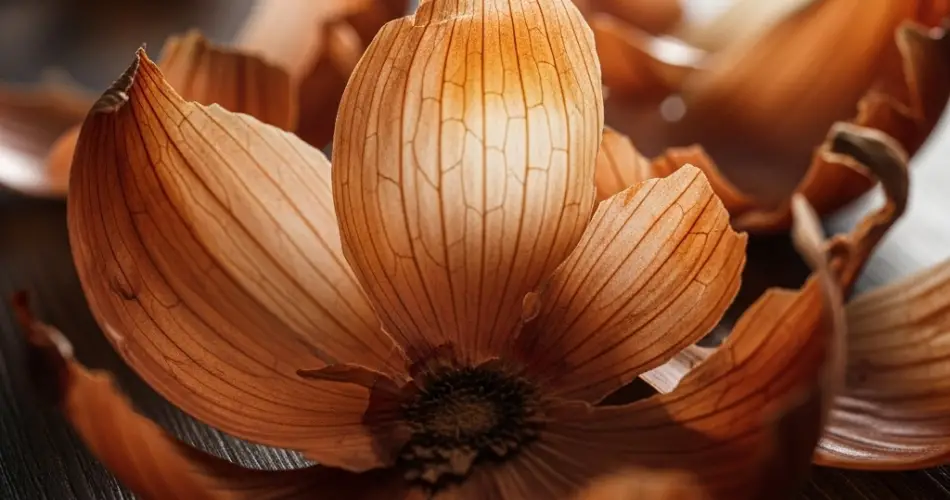Onions are a kitchen staple, but their benefits don’t stop at the cutting board. These humble bulbs also carry surprising power when used in the garden. Packed with nutrients, enzymes, and natural antibacterial properties, onions can be transformed into a simple, organic fertilizer that boosts plant health, improves soil conditions, and even helps ward off pests and diseases.
If you’re looking to feed your plants naturally while enhancing their resilience, onion-based plant food is a clever and eco-friendly solution. It’s easy to make, affordable, and makes great use of kitchen scraps that might otherwise go to waste.
Why Onion-Based Fertilizer Works
Onions are rich in sulfur, potassium, calcium, magnesium, and antioxidants—all of which contribute to strong, healthy plant growth. Here’s why onion-infused plant food is a great addition to your gardening routine:
-
Sulfur plays a key role in disease resistance and chlorophyll production.
-
Potassium promotes strong roots and helps plants resist drought and stress.
-
Calcium is essential for cell wall development and prevents disorders like blossom end rot.
-
Antimicrobial compounds in onions help reduce soil-borne pathogens and fungal diseases.
-
Antioxidants support overall plant vitality and stress tolerance.
Using onion scraps or a blended onion solution provides your plants with a gentle yet effective nutrient boost.
How to Make Onion Fertilizer at Home
There are several easy ways to turn onions into natural plant food. You can use onion peels, chopped onions, or even onion water left over from cooking.
1. Onion Peel Liquid Fertilizer
This method is perfect for using up leftover onion skins and peels.
Ingredients:
-
Onion peels from 2–3 onions
-
1 liter of water
-
A container with a lid
Instructions:
-
Place the onion peels in a container and pour the water over them.
-
Let the mixture soak for 24 to 48 hours in a shaded area.
-
Strain out the solids and pour the liquid into a watering can or spray bottle.
How to use: Apply directly to the soil around your plants once a week. It’s particularly effective for leafy greens, flowering plants, and root vegetables.
2. Blended Onion Fertilizer (for stronger treatment)
This method is more concentrated and acts as both a fertilizer and a mild pest repellent.
Ingredients:
-
1 small onion (chopped)
-
3–4 cups of water
Instructions:
-
Blend the chopped onion with water until smooth.
-
Strain the mixture through cheesecloth or a fine mesh to remove pulp.
-
Pour the liquid into a spray bottle or watering can.
Application: Spray on the soil or directly on plant leaves in the early morning or late afternoon. Use once every 10–14 days. Avoid applying in full sun to prevent leaf burn.
Onion Water as a Root Tonic
If you’ve recently boiled onions for cooking, don’t pour the leftover water down the drain. Once cooled, it can be used to water your plants. This mild infusion contains trace nutrients and can be especially helpful for seedlings or potted herbs.
Additional Benefits: Pest and Disease Control
Onion-based fertilizers do more than feed your plants—they also offer some natural pest control. The sulfur compounds and strong aroma help repel:
-
Aphids
-
Mites
-
Whiteflies
-
Fungal infections like powdery mildew
While not as potent as garlic spray, onion solutions offer a gentle, multi-purpose approach for general garden protection.
Best Plants to Feed with Onion Fertilizer
Onion-based fertilizer can be used on most plants, but it works particularly well with:
-
Tomatoes
-
Peppers
-
Spinach
-
Kale
-
Broccoli
-
Flowering plants like marigolds and roses
Avoid applying to beans and peas in large amounts, as they are sensitive to sulfur and may not respond well to concentrated applications.
Tips for Success
-
Always strain the liquid well before spraying to avoid clogging nozzles.
-
Test on a small area first, especially with foliar applications, to check for plant sensitivity.
-
Use fresh onion solutions within 2–3 days, as they lose potency and may ferment if left too long.
-
Alternate with compost tea or banana peel fertilizer for a balanced feeding routine.
Sustainable Gardening with Kitchen Scraps
Using onions in your garden is part of a larger movement toward zero-waste, sustainable gardening. Rather than discarding onion peels and ends, repurposing them into fertilizer helps you close the loop—reducing waste while feeding your plants naturally.
It also saves money and reduces your dependence on chemical fertilizers, making your garden healthier for you, your family, and the environment.
Final Thoughts
The next time you chop an onion, consider saving the peels or boiling water for your garden. Onion-based fertilizer is a simple yet powerful tool that enhances plant health, supports soil life, and keeps pests in check—all without any synthetic additives. With just a few ingredients and a little preparation, you can unlock one of nature’s best-kept secrets for growing stronger, more vibrant plants.
So put your onion scraps to good use—your garden will thank you with lush growth and flavorful harvests.



